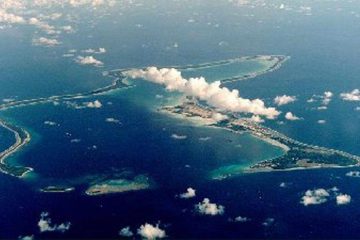Understanding the Yamal Peninsula and Its Energy Significance

Introduction
The Yamal Peninsula, located in northwestern Siberia, Russia, is rapidly gaining importance on the global stage, primarily due to its vast natural gas reserves. As energy demands escalate worldwide and the pursuit for cleaner fuel sources intensifies, Yamal is becoming a focal point for energy production and geopolitical strategies within and outside Russia.
The Yamal Gas Project
The Yamal LNG project is pivotal in the region, having commenced operations in December 2017. This project is spearheaded by Novatek, a major Russian gas producer, and backed by significant investments from international partners, including Total and China National Petroleum Corporation. By leveraging the region’s vast resources, the project is positioned as a core component of Russian gas exports, with projections suggesting an annual capacity exceeding 16.5 million tonnes of liquefied natural gas (LNG). This positions Yamal as one of the leading players in LNG production globally.
Geopolitical Implications
The strategic position of Yamal extends beyond mere energy production. It sends significant ripples through geopolitical arenas, particularly in light of changing energy routes to Europe and Asia. As some European nations tackle the challenge of reducing dependency on Russian energy, Yamal has become central to these discussions. The Arctic’s melting ice due to climate change is opening new trade routes, making gas from Yamal more accessible for shipping to emerging markets in Asia, where demand is rising.
Environmental Considerations
Despite its economic potential, the Yamal region faces environmental challenges. The gas extraction and production activities have significant implications for local ecosystems and indigenous communities. Concerns about methane emissions and the fragility of Arctic environments have led to calls for sustainable development practices. As such, the balance between harnessing natural resources and protecting ecological integrity is of utmost importance in the region.
Conclusion
The Yamal Peninsula stands as a testament to the multifaceted nature of modern energy production, combining environmental, economic, and political dimensions. As demand for natural gas continues to rise, Yamal’s strategic importance is set to grow, influencing not only energy markets but also geopolitical relationships across the globe. The coming years will likely see increased development and possibly contention regarding resource management, making Yamal a significant point of interest in both energy and environmental discussions.







